Let’s be honest—protein powder can get really expensive. And when you’re trying to eat healthy without blowing your budget, it’s easy to feel stuck. The truth is, you don’t need to spend top dollar to fuel your goals. The best cheap protein powder gives you the nutrition you need without the fancy price tag. Whether you’re new to fitness or just trying to add more protein to your day, there are solid, affordable options out there and we’re here to help you find them.
The protein powder market is vast and varied, with prices ranging from budget-friendly to premium. Navigating this landscape can be overwhelming, especially when trying to balance cost with quality. Many people assume that cheaper protein powders automatically equate to lower quality, but this isn’t always the case.
There are several excellent, affordable protein powder options available that can help you meet your protein goals without emptying your wallet.
This comprehensive guide aims to demystify the world of cheap protein powder. We’ll explore the importance of protein, discuss how to choose a cost-effective yet high-quality protein powder, review some of the best budget-friendly options on the market, and provide practical tips for saving money on your protein supplement purchases.
We’ll also address common concerns and misconceptions about cheap protein powder, empowering you to make informed decisions about your protein supplementation.
Table of Contents
The Importance of Protein
Protein is a building block of life, composed of amino acids that play a crucial role in numerous bodily functions. Here’s a closer look at why protein is so important:
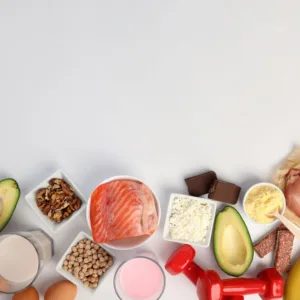
How Much Protein Do You Need?
The recommended daily allowance (RDA) for protein is 0.8 grams per kilogram of body weight (or 0.36 grams per pound). However, this is just a baseline recommendation for sedentary individuals. Protein needs can vary depending on factors such as activity level, age, and specific health goals. Here’s a general guideline:
It’s important to note that these are just general recommendations. Consulting with a registered dietitian or certified personal trainer can help you determine your specific protein needs based on your individual circumstances and goals.
Choosing a Cheap Protein Powder: What to Look For
Finding a cheap protein powder that meets your quality standards can be challenging, but it’s definitely possible. Here are some key factors to consider:
Addressing Common Concerns and Myths
Tips for Saving Money on Protein Powder
Best Cheap Protein Powder in 2025
1. Nutricost Organic Pea Protein Isolate
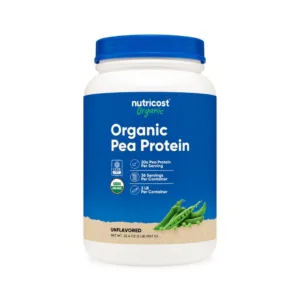
Features:
- 100% organic pea protein.
- 24g of protein per serving.
- No gluten, soy, or dairy.
- Non-GMO verified.
- Available in unflavored and lightly sweetened options.
2. Naked Pea Protein Powder
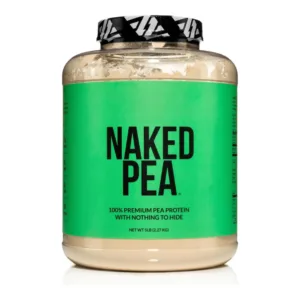
Features:
- 100% pea protein isolate.
- 27g of protein per serving.
- No additives, sweeteners, or preservatives.
- Sourced from North American peas.
- NSF Certified for Sport.
3. NOW Sports Nutrition Whey Protein
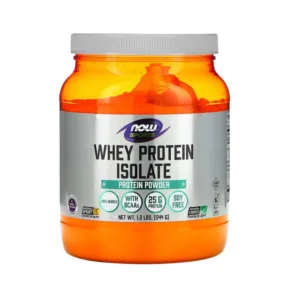
Features:
- Whey protein concentrate.
- 24g of protein per serving.
- No artificial sweeteners or colors.
- Gluten-free and non-GMO.
- 10 servings per container.
4. MyProtein Impact Whey Protein
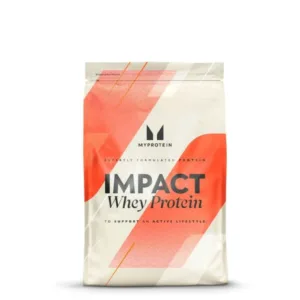
Features:
- 21g of protein per serving.
- 4g of BCAAs per serving.
- Whey protein concentrate formula.
- Over 40 flavor options.
- Low in sugar and fat.
5. Bulk Natural Pure Whey Isolate
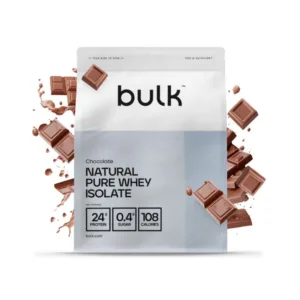
Features:
- 100% whey protein isolate.
- 25g of protein per serving.
- Zero added sugar or artificial sweeteners.
- Ideal for low-carb and ketogenic diets.
- Gluten and soy-free.
6. Orgain Organic Protein Powder
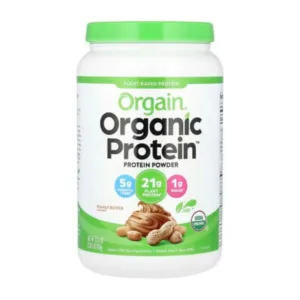
Features:
- 21g of protein per serving from organic pea, brown rice, and chia.
- Certified organic and non-GMO.
- No artificial flavors, sweeteners, or preservatives.
- Contains fiber for digestive health.
- 2g of sugar per serving.
7. Vega Sport Protein
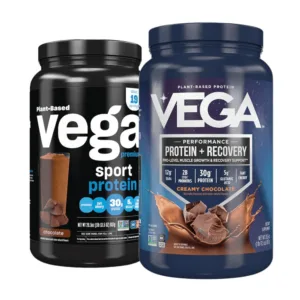
Features:
- 30g of plant-based protein (pea, pumpkin seed, sunflower seed).
- BCAAs and glutamine for muscle recovery.
- Probiotics for improved gut health.
- Vegan and non-GMO.
- 3g of sugar per serving.
8. Dymatize Nutrition Elite Whey Protein
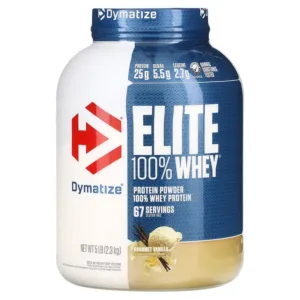
Features:
- 25g of protein per serving from whey protein isolate and concentrate.
- 5.5g of BCAAs per serving.
- Rich in glutamine.
- Available in multiple flavors.
- No gluten or soy.
9. Promix Grass-Fed Whey Protein
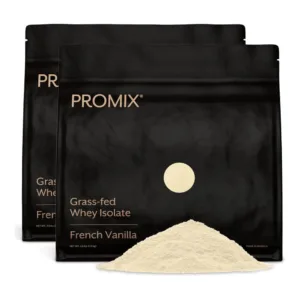
Features:
- 24g of protein per serving from grass-fed whey.
- No antibiotics, hormones, or GMOs.
- 100% whey protein isolate.
- Tested for heavy metals.
- 5g of BCAAs per serving.
10. Kaged Muscle Micropure Whey Isolate
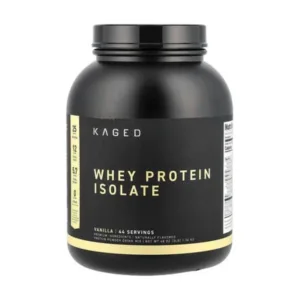
Features:
- 25g of whey protein isolate per serving.
- No artificial flavors or sweeteners.
- Lactose-free.
- Contains 5.6g of BCAAs per serving.
- Easily digestible with no added fillers.
11. Six Star Whey Protein
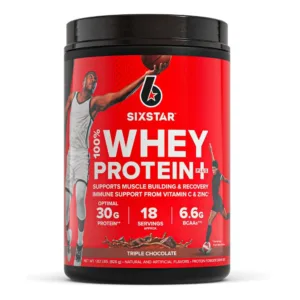
Features:
- 30g of protein per serving.
- Contains added creatine monohydrate.
- Includes BCAAs for muscle repair.
- Affordable and widely available.
- Available in multiple flavors.
12. Isopure Low-Carb Whey Protein
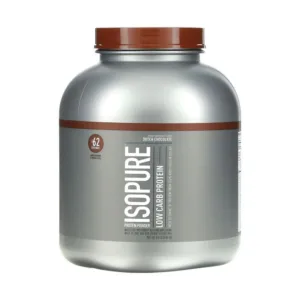
Features:
- 25g of protein per serving.
- Zero carbs and sugar.
- 100% whey protein isolate.
- Keto-friendly.
- Contains no gluten or lactose.
13. Garden of Life Organic Protein
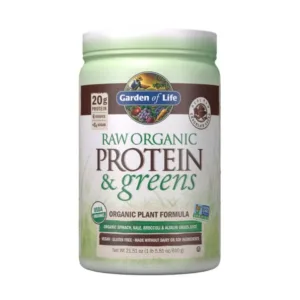
Features:
- 21g of protein per serving from organic pea, sprouted brown rice, and chia.
- Certified organic and non-GMO.
- No added sugars, gluten, or dairy.
- Probiotics and enzymes for digestion.
- Contains 4g of fiber per serving.
14. Jarrow Formulas Whey Protein
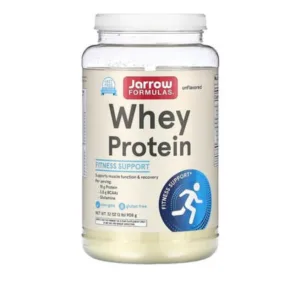
Features:
- 20g of whey protein concentrate per serving.
- No added sugars or artificial flavors.
- Free from gluten and soy.
- High in amino acids.
15. Bodybuilding.com Signature Whey Protein
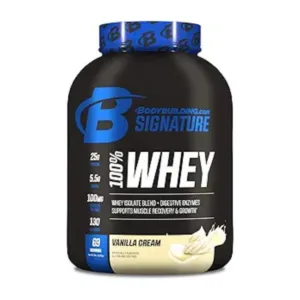
Features:
- 24g of protein per serving.
- Contains whey protein isolate and concentrate.
- Includes digestive enzymes to aid absorption.
- No artificial colors or flavors.
- Available in various flavors.
16. Vital Proteins Collagen Peptides
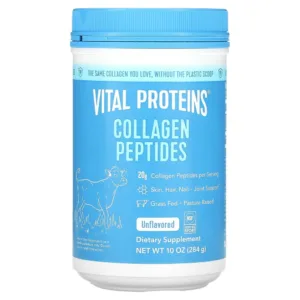
Features:
- 20g of collagen peptides per serving.
- Promotes joint and skin health.
- Grass-fed, pasture-raised collagen.
- Unflavored for easy mixing.
- No gluten, dairy, or soy.
17. True Nutrition Custom Protein Blend
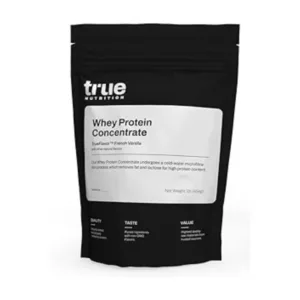
Features:
- Customizable protein blend options.
- High-quality ingredients like whey, casein, and plant proteins.
- Available in a variety of flavors.
- Offers different protein sources to suit various dietary needs.
18. True Athlete Whey Protein
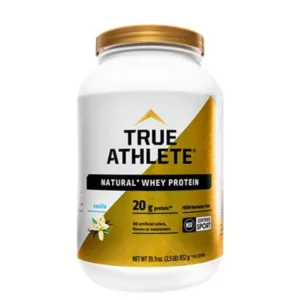
Features:
- 24g of protein per serving from whey protein concentrate.
- No artificial sweeteners or preservatives.
- Free from gluten, soy, and GMOs.
- Available in different flavors.
19. Bulk Natural Whey Protein Concentrate

Features:
- 24g of protein per serving.
- No artificial sweeteners, colors, or flavors.
- High in BCAAs.
- Ideal for those looking for a clean whey concentrate.
20. Pro Jym Protein Powder
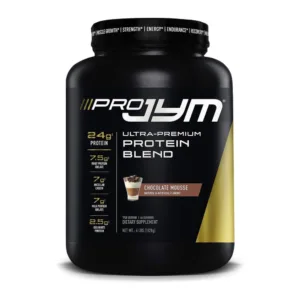
Features:
- 24g of protein per serving from whey, casein, and egg white protein.
- Supports both fast and slow digestion for sustained protein release.
- Includes 5g of BCAAs per serving.
- No added sugars or artificial ingredients.
- Available in various flavors.
Conclusion
Choosing the right protein powder comes down to factors such as your dietary preferences, goals, and budget. There are affordable options that still provide high-quality protein, whether you prefer whey or plant-based varieties.
By doing research, comparing brands, and understanding your body’s unique needs, you can make an informed decision that supports your fitness goals without breaking the bank. Always prioritize quality and safety, and don’t hesitate to explore different products to find what works best for you.
FAQs
1. Why is protein powder so expensive?
Protein powders can be expensive due to factors such as high-quality ingredients, brand marketing, and specialized formulas. Premium ingredients like whey protein isolate, grass-fed whey, or organic plant-based protein increase production costs, which are reflected in the price. Additionally, some brands invest heavily in testing, quality control, and certifications, adding to the overall cost.
2. Are cheap protein powders safe to use?
Cheap protein powders can be safe, but it’s essential to check the ingredient list and the brand’s reputation. Some budget brands might use low-quality ingredients or fillers. To ensure safety, opt for well-known brands that test their products for heavy metals or other contaminants. Also, always read labels to avoid harmful additives.
3. How do I know which protein powder is best for me?
To find the best protein powder, consider your dietary preferences, budget, and any allergies or sensitivities (like lactose intolerance). If you’re vegan or vegetarian, plant-based options like pea or rice protein are ideal. If you’re looking for a high-quality, fast-digesting protein, whey isolate is often the best choice. Research brands, read reviews, and consult with a nutritionist if needed.
4. Can I get all the protein I need from protein powder?
Protein powder is a convenient supplement, but it’s important not to rely on it as your sole source of protein. A balanced diet that includes whole foods such as meats, legumes, dairy, and vegetables will provide a more complete range of nutrients. Protein powder can help meet protein goals when used in addition to a well-rounded diet.
5. What is the difference between whey protein isolate and concentrate?
Whey protein isolate has a higher protein content (usually 90% or more) and fewer fats and carbohydrates compared to whey protein concentrate. Isolate is often recommended for those who want a leaner protein source or have lactose sensitivities. Concentrate, on the other hand, is less processed and may have a more natural flavor but contains more fats and carbs.
6. Is plant-based protein powder as effective as whey?
Plant-based protein powders can be just as effective as whey, especially for those who follow a vegan diet or have dairy sensitivities. While whey protein has a higher biological value (meaning it’s absorbed and used by the body more efficiently), plant-based proteins still provide essential amino acids and can support muscle recovery and growth. You may need to combine different plant proteins to ensure you get a complete amino acid profile.
7. Should I buy protein in bulk to save money?
Yes, buying protein in bulk is an excellent way to save money, especially if you use it regularly. Protein powders have a long shelf life (9 to 18 months), so you can stock up on larger containers or bulk packages, which typically cost less per serving. However, ensure you have the storage space and will use it before it expires.
8. How can I improve the taste of protein powder?
Many people find protein powder to have a chalky or unpleasant taste. To improve the flavor, try blending it with smoothies, adding natural sweeteners like stevia or honey, or mixing it with milk or a non-dairy alternative. Experiment with different flavors until you find one you enjoy.
9. Is protein powder necessary for muscle building?
Protein powder is not strictly necessary for muscle building, but it can be a convenient way to meet your protein requirements. The key to muscle growth is a well-rounded fitness program combined with adequate protein intake. If you’re not getting enough protein from whole foods, protein powder can help you reach your daily goals.
10. How much protein do I need per day?
The general recommendation is to consume around 0.6-0.9 grams of protein per pound of body weight if you’re aiming to build muscle or improve athletic performance. However, your needs may vary based on factors like age, activity level, and overall health. Consult with a healthcare provider or nutritionist for personalized advice.

Leave a Reply